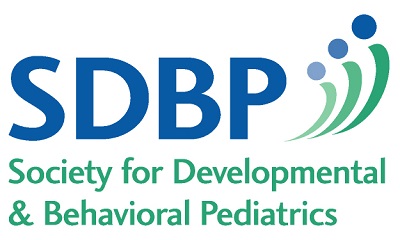SDBP Statements regarding leucovorin, Tylenol and autism:
SDBP Statement on DOE "Professional" Program Classification
SDBP is committed to advocating for policies and practices that advance the developmental and behavioral health of children and families. We encourage stakeholders, partners, and the public to view and share these statements to support advocacy efforts and inform decision-making in healthcare, education, and policy.
SDBP Legislative Advocacy Opportunities & Guidance
SDBP is committed to supporting our members in engaging in advocacy related to legislation and other efforts intended to improve access to care and quality of life for individuals with intellectual and developmental disabilities (IDDs).

SDBP Educational Resources Hub
Created by SDBP members based on needs assessment, here we share developmental-behavioral pediatric and psychology education resources. A great place for educators looking to design curricula, as well as materials for parents, families and patients. Plus our Invite a Lecturer series!

Developmental Behavioral Pediatrics is for YOU!
We have over 40 ACGME-accredited fellowship training programs all around the country from which to choose - check out these 37 programs!
SDBP Society News
- SDBP Affirms Commitment to Evidence-Based Care Following Retraction of Leucovorin Autism Study
- HELP MOVE the HEADs UP Act and Autism Cares Act!
- DBPNet publishes Consensus Statement on healthcare access for youth with neurodevelopmental disabilities!
- SDBP Past President, Dr. Adiaha Spinks-Franklin in the news: "This Doctor Hopes that her Subspecialty Will One Day Be Recognized as the Backbone of Pediatrics..."
- Ending Developmental-Behavioral Pediatrics Faculty Requirement for Pediatric Residency Programs - Desperate Times...Read Full Article
- SDBP signs on to support funding for the Pediatric Subspecialty Loan Repayment Program - letters to the House and Senate!
- DBP: Critical for Pediatric Health Outcomes
- Society for Developmental & Behavioral Pediatrics Position Statement on Telehealth published in JDBP.
- More Society News
Donate to SDBP
Help SDBP sustain our current work and provide additional resources to support the core goals of the SDBP Strategic Plan: Education, Research, Practice, Advocacy, and Visibility.
Find a Clinician
Discover specialized clinicians in developmental and behavioral pediatrics with our searchable directory provided by the Society of Developmental and Behavioral Pediatrics
JDBP Current Issue
| Editor-in-Chief: | Lee M. Pachter, DO |
| ISSN: | 0196-206X |
| Online ISSN: | 1536-7312 |
| Frequency: | 9 issues / year |
| Ranking: | Behavioral Science 41/53 Pediatrics 63/129 |
| Impact Factor: | 2.225 |





